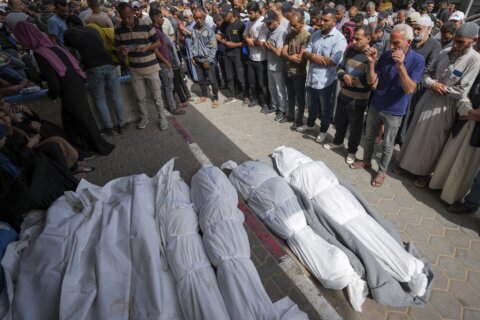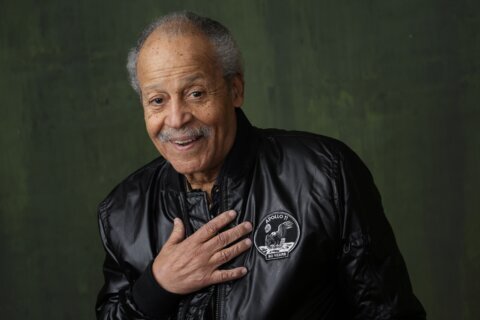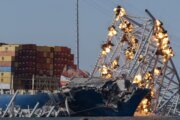Israeli forces have seized the Gaza side of the Rafah border crossing with Egypt, pressing their offensive into the southern city on Tuesday. The closed border means U.N. humanitarian teams in Gaza will run out of diesel fuel by Wednesday, a senior humanitarian official said, leaving them unable to pump drinking water, maintain communications and deliver aid.
The Israeli assault into Rafah came just hours after Hamas accepted a cease-fire proposal mediated by Egypt and Qatar. Israel insists the deal does not meet its core demands.
Israel says Rafah is Hamas’ last stronghold, however the United States opposes a full-scale invasion of the city without a “credible” plan for protecting civilians. Rafah is currently filled with more than a million displaced civilians huddling in tents and overcrowded apartments.
The war in Gaza has driven around 80% of the territory’s population of 2.3 million from their homes and caused vast destruction to apartments, hospitals, mosques and schools across several cities. The death toll in Gaza has soared to more than 34,500 people, according to local health officials.
The war began Oct. 7 when Hamas attacked southern Israel, killing around 1,200 people, mostly civilians, and abducting about 250 others. Israel says militants still hold around 100 hostages and the remains of more than 30 others.
Currently:
— US paused bomb shipment to Israel to signal concerns over Rafah invasion, official says.
— Israeli tanks have rolled into Rafah. What does this mean for the Palestinians sheltering there?
— Scenes from Israel and Gaza reflect dashed hopes as an imminent cease-fire seems unlikely.
— Israeli forces take control of the Gaza side of the Rafah crossing with Egypt.
— The U.N. says there’s ‘full-blown famine’ in northern Gaza. What does that mean?
— Bernie Sanders says Gaza may be Joe Biden’s Vietnam. But he’s ready to battle for Biden over Trump.
Follow AP’s coverage of the war at https://apnews.com/hub/israel-hamas-war
Here’s the latest:
US PAUSED BOMB SHIPMENT TO ISRAEL OVER RAFAH INVASION CONCERNS, OFFICIALS SAYS
The U.S. paused a shipment of bombs to Israel last week over concerns Israel was approaching a decision on launching a full-scale assault on the southern Gaza city of Rafah, a senior administration official said Tuesday.
The shipment was supposed to consist of 1,800 2,000-pound bombs and 1,700 500-pound bombs, according to the official, who spoke on the condition of anonymity to discuss the sensitive matter, with the focus of U.S. concern being the larger explosives and how they could be used in a dense urban setting. More than 1 million civilians are sheltering in Rafah after evacuating other parts of Gaza amid Israel’s war on Hamas, which came after the militant group’s deadly attack on Israel on Oct. 7.
President Joe Biden’s administration in April began reviewing future transfers of military assistance to Israel as Prime Minister Benjamin Netanyahu’s government appeared to move closer toward an invasion of Rafah, despite months of opposition from the White House.
The official said the decision to pause the shipment was made last week and no final decision had been made yet on whether to proceed with the shipment at a later date.
— By ZEKE MILLER and AAMER MADHANI in Washington
ISRAELI MILITARY SAYS IT INTERCEPTED A DRONE HEADED TOWARD RED SEA PORT
JERUSALEM — The Israeli military says it has intercepted a “suspicious aerial target” that was headed toward the Red Sea port of Eilat.
The army said the drone was launched from the east and intercepted outside of Israeli airspace on Tuesday. It gave no further details on the source of the launch.
Iranian-backed militias across the region, including Yemen’s Houthi rebel group, have repeatedly fired missiles and drones toward Israel throughout the seven-month war in Gaza. Iran also launched over 300 missiles and drones toward Israel in a single strike last month in what it said was a response to the killing of two Iranian generals in Syria that it blamed on Israel.
U.S. MILITARY HAS FINISHED BUILDING A TEMPORARY PIER TO DELIVER AID TO GAZA. PLANS TO MOVE IT INTO PLACE ON HOLD
WASHINGTON — The U.S. military has finished construction of a temporary pier and causeway that will be used to deliver aid to Gaza through a maritime system, but plans to move it into place on the shore are on hold due to weather and other logistics.
Sabrina Singh, a Pentagon spokeswoman, told reporters on Tuesday that U.S. military ships and the assembled pier are at Israel’s Ashdod port. High winds and sea swells are making it too dangerous for the U.S. military to install the pier at the Gaza beach.
Singh says the U.S. hopes to install the pier and causeway later this week, if the weather permits.
Meanwhile, humanitarian aid is being loaded onto a large container ship, the Sagamore, in Cyprus, for eventual delivery to Gaza, Singh said.
The U.S. hopes the pier can be used to bring more humanitarian aid into Gaza, where the U.N. says there is a full-blown famine in the north.
FUEL IS RUNNING OUT IN GAZA, AND U.N. WILL SOON LOSE WATER, FOOD, MEDICAL AND AID OPERATIONS
UNITED NATIONS — Critical diesel fuel to pump drinking water, maintain communications and deliver aid in Gaza will run out Wednesday and it’s estimated that food already in the south will be gone by the end of the week, a senior U.N. humanitarian said following Israel’s closure of the two key crossing points into the territory.
Andrea De Domenico, the head of the U.N.’s humanitarian office in the Palestinian territories, said Tuesday that Israel’s military operation and evacuation order in Rafah has resulted in “the forced displacement of tens of thousands of people.”
The area Israel told Palestinians to go is mainly sand dunes and has no latrines, water points, drainage, shelter or health facilities, De Domenico said in a virtual news conference from Jerusalem.
The Israelis are not on the ground providing services and are looking for humanitarian partners, he said. And it is impossible to improve conditions without the arrival of supplies and fuel to transport them to the new locations.
Without fuel and more flour, he said, the 16 bakeries supported by the U.N. World Food Program throughout Gaza will be forced to suspend operations. If supplemental nutrition supplies can’t be delivered, the treatment of more than 3,000 children suffering from acute malnutrition will be interrupted, he said, and three of the main remaining hospitals “will become inoperable.”
De Domenico said the U.N. normally uses 200,000 liters of diesel fuel a day in Gaza. As of Tuesday night, it had 30,000 liters left.
Without a fuel delivery on Wednesday, he said, the main water production facility in the north will be shut, “depriving the entire population of access to drinking water.” The same shutdown will happen in another day for the middle and south of Gaza, impacting 1.9 million people.
“The reality is that we are confronting a situation where we have probably one of the least resilient populations in Gaza because of the seven months of war in one of the most violent and lethal conflicts that we have seen in recent years,” he said.
De Domenico said there is a risk that no humanitarian assistance will be available in the coming days unless a way can be found to bring in and sustain aid deliveries.
The Israelis have assured the U.N. they are working on ways to bring in more fuel, hopefully on Wednesday, he said, and they said they hope to reopen the crossings rapidly, but didn’t give a timeline.
RIGHTS GROUP SAYS ISRAEL VIOLATES U.N. COURT ORDERS BY BLOCKING AID AT BORDER CROSSINGS
JERUSALEM — Human Rights Watch said Tuesday that by preventing the transfer of much-needed humanitarian aid into Gaza, Israel was violating orders handed down by the International Court of Justice.
The Court has twice ordered Israel to do more to allow aid into Gaza. For the last two days, both major crossings into the besieged enclave have been closed. One, Kerem Shalom, was closed after a Hamas mortar attack there killed soldiers. The other, Rafah, was seized by Israel on Tuesday morning.
Human Rights Watch alleges that even before the recent crossing closures, the amount of aid entering Gaza was far from enough. The United Nations reported an increase on average of only 24 trucks a day after the order came down from the International Court of Justice. That’s as the head of the UN’s main food program says a “full-blown famine” is developing in Gaza’s north.
“Despite children dying from starvation and famine in Gaza, the Israeli authorities are still blocking aid critical for the survival of Gaza’s population in defiance of the World Court,” said Omar Shakir, Israel and Palestine director at Human Rights Watch. “With each day that Israeli authorities block lifesaving aid, more Palestinians are at risk of dying.”
COGAT, the Israeli military body in charge of civilian affairs in Gaza, did not immediately respond to a request for comment on the report. Israel disputes the U.N.’s figures and, prior to the recent crossings closures, said it was surging aid into the strip, opening up additional crossings in the north and allowing aid shipments through a port in Ashdod.
The report, citing interviews with aid workers, also said Israeli authorities continue to deny certain items from entering Gaza and have refused to provide a comprehensive list of what is not allowed in.
The report says that solar panels, motors, metal parts, and things stored in wooden crates are often rejected. That means advanced medical equipment and generators are difficult to get in. Several aid workers said that entire trucks of aid can be rejected by Israeli authorities if they are carrying banned items. Israel says that it rejects items that are “dual use,” or could be used for militant purposes.
U.S. EXPECTS KEREM SHALOM CROSSING BETWEEN ISRAEL AND GAZA TO REOPEN WEDNESDAY
WASHINGTON — White House press secretary Karine Jean-Pierre said Tuesday that the U.S. expects the Kerem Shalom crossing to be reopened to humanitarian aid for Gaza on Wednesday.
The Rafah crossing with Egypt and the Kerem Shalom crossing with Israel are critical entry points for food, medicine and other supplies for Gaza’s 2.3 million people. They have been closed for at least the past two days, although the smaller Erez crossing between Israel and northern Gaza continues to operate.
Kerem Shalom was closed after a Hamas mortar attack there killed soldiers. Rafah was seized by Israeli forces early Tuesday morning.
The U.N. warned of a potential collapse of the flow of aid to Palestinians from the closure of the Rafah and Kerem Shalom crossings, at a time when officials say northern Gaza is experiencing “full-blown famine.”
DEATH CONFIRMED OF ISRAELI MAN WHOSE BODY WAS TAKEN INTO GAZA ON OCT. 7
TEL AVIV — A support group for the families of Israeli hostages taken into Gaza confirmed Tuesday the death of Lior Rudaeff, 61, the 39th hostage known to have died.
Rudaeff was killed in the Oct. 7 Hamas attack and his body taken into Gaza, the Hostages Families Forum said. He was from Kibbutz Nir Yitzhak, and came to Israel from Argentina as a child, the Forum said.
Israel says Hamas is holding about 100 hostages and the remains of more than 30 others.
Rudaeff’s body has not been returned, the Forum said, demanding that the Israeli government “pursue every avenue in the current negotiations” to bring back his remains as well as all the hostages still in Gaza.
HAMAS SAYS IT WON’T MAKE CONCESSIONS UNDER FIRE
BEIRUT — A Hamas political official said Tuesday that the militant group would not make concessions under fire in its ongoing negotiations for a cease-fire and hostage release deal.
The comments by Osama Hamdan on Tuesday followed Israel’s incursion into Rafah, where troops seized a key border crossing from Gaza to Egypt. At the same time, a delegation of Hamas officials arrived in Cairo to continue the negotiations.
Hamdan said the proposal Hamas had agreed to “represents the minimum that meets the demands of our people and our resistance” and was agreed upon by all the Palestinian factions operating in Gaza.
“The ball is in the Israeli court and in the court of the American administration because this agreement, the text we agreed to, before it was presented to us, was approved by all the mediators, including the American side,” he said. The mediators, he said, had given guarantees that Israel would implement the agreement.
The Associated Press could not independently confirm these behind-the-scenes details of the negotiations.
Hamdan said Hamas “will not respond to any initiative to stop the aggression or any exchange deal under military pressure and under the escalation of aggression, and these illusions, if (the Israelis) have them in their minds, will go unrealized.”
He said the group “will not accept the presence of any occupying force” on the Gaza side of the Rafah crossing, which “was and will remain for us a purely Egyptian-Palestinian crossing.”
U.S. IS CAUTIOUSLY OPTIMISTIC THAT ISRAEL AND HAMAS CAN CLOSE GAPS IN CEASE-FIRE DEAL
WASHINGTON — A White House spokesman on Tuesday expressed guarded optimism that Israel and Hamas “should be able to close the remaining gaps” to complete an agreement that would lead to release of hostages and pave the way for an extended truce in the seven-month war in Gaza.
“It’s based on our understanding of where the text is right now,” White House national security spokesman John Kirby said of the administration’s optimism. “Again, Hamas responded yesterday and there were amendments offered. Again, that’s the task of negotiating. That’s what negotiations are all about. It’s our understanding from looking at the text that we feel it suggests that we should be able to close these gaps.”
Talks are to continue on Tuesday in Cairo. Kirby declined to put a timeline on when Americans officials believe a deal can be sealed.
“Everybody’s coming. Qatar is coming. The Israelis are coming. Obviously, the Egyptians will be there of course, and Bill Burns will be there,” Kirby said. “That’s not insignificant. Everybody is coming to the table.”
WHITE HOUSE SAYS ISRAELI OPERATION IN RAFAH IS NOT THE FULL-ON INVASION BIDEN WARNED AGAINST
WASHINGTON — White House National Security Council spokesman John Kirby said Tuesday that Israel’s operation along the Gaza-Egypt border in eastern Rafah is not a full-on invasion of the city that Biden has repeatedly warned against on humanitarian grounds.
Kirby said the U.S. has been told by Israelis that it “is an operation of limited scale and duration and aimed at cutting off Hamas’s ability to ship arms across the Rafah border.”
He said the U.S. would be closely monitoring Israeli conduct, adding: “How they describe this is not of a size, scale, duration and scope that one could equate to a major ground operation.”
ISRAEL’S DEFENSE MINISTER VOWS TO ‘DEEPEN’ RAFAH OFFENSIVE IF TALKS ON HOSTAGE DEAL FAIL
JERUSALEM — Israel’s defense minister has vowed to “deepen” the military offensive in Rafah if a deal to bring home Israeli hostages held by Hamas does not make progress.
Israel sent troops into Rafah late Monday and seized the city’s strategic border crossing with Egypt after rebuffing a cease-fire proposal approved by Hamas. Israel said the proposal did not address its “core” demands but agreed to continue negotiations.
Defense Minister Yoav Gallant visited troops in the Rafah area on Tuesday and said the operation would continue until Israel “eliminates” Hamas in Rafah and the rest of Gaza.
But he said Israel is willing to make “compromises” to bring home hostages. “If that option is removed, we will go on and ‘deepen’ the operation,” he said. “This will happen all over the strip — in the south, in the center and in the north.”
NETANYAHU SAYS CAPTURE OF RAFAH CROSSING WAS AN IMPORTANT STEP TOWARD DISMANTLING HAMAS
JERUSALEM — Israeli Prime Minister Benjamin Netanyahu says the military’s capture of the Gaza side of the Rafah crossing is an “important step” toward dismantling Hamas’ military and economic capabilities.
Tuesday’s capture of the crossing, which is one of the main conduits for humanitarian aid to the territory, puts Israel in full control of Gaza’s borders for the first time since it withdrew troops in 2005.
The U.N. has warned of a potential collapse of the flow of aid to Palestinians from the closure of Rafah and the other main crossing into Gaza, Kerem Shalom, at a time when officials say northern Gaza is experiencing “full-blown famine.”
GERMANY WARNS ISRAEL NOT TO LAUNCH A MAJOR OFFENSIVE ON RAFAH
BERLIN — German Foreign Minister Annalena Baerbock on Tuesday warned Israel of “a major offensive on Rafah.”
“I strongly caution against conducting a major offensive on Rafah,” the minister wrote on X, formerly Twitter.
“One million people cannot vanish into thin air. They need protection. They urgently need further humanitarian assistance,” she added, demanding that ”the Rafah and Kerem Shalom border crossings must be reopened immediately.”
Germany has for decades been a staunch supporter of Israel. Berlin, however, has gradually shifted its tone as civilian casualties in Gaza have soared, becoming increasingly critical of the humanitarian situation in Gaza. In recent weeks, Baerbock has repeatedly spoken out against a ground offensive in Rafah.
TURKEY CALLS ON ISRAEL TO WITHDRAW FORCES FROM RAFAH BORDER CROSSING
ANKARA, Turkey — Turkey called on Israel to withdraw its forces from Gaza’s Rafah border crossing and warned that any military action in the southern city would have global implications.
Israeli Prime Minister Benjamin Netanyahu “was not acting in good faith” when he escalated attacks on Rafah just as the Hamas militant group accepted a cease-fire proposal, said Turkish Foreign Ministry Spokesman Oncu Keceli in a statement Tuesday.
“An operation targeting Rafah will affect not only the region but the whole world,” Keceli said. “It is essential that Israel immediately withdraw from the Gaza section of the Rafah border crossing that it has occupied. There must be an immediate return to the status quo in Rafah and the border crossing.”
A MAIN HOSPITAL IN RAFAH IS EVACUATED BECAUSE OF INTENSE ISRAELI STRIKES, HEALTH MINISTRY SAYS
CAIRO — The Hamas-run Health Ministry in Gaza said Tuesday that one of the main hospitals in the southernmost city of Rafah was evacuated due to intense Israeli strikes in the area.
Medhat Abbas, a spokesman for the ministry, said the evacuation of all the patients of Abu Youssef al-Najjar Hospital began late Monday and finished Tuesday. All have been transferred to other medical facilities and makeshift hospitals nearby, he said, without elaborating. It remains unclear if there has been any damage to the facility.
The ministry’s announcement comes hours after Israel began a ground assault on Rafah and ordered the evacuation of eastern areas of the city. The hospital does not fall within the Israeli-designated evacuation zone.
Dialysis patients were some of the last remaining in Abu Youssef al-Najjar according to the hospital’s manager, Marwan al-Husm, who spoke with The Associated Press earlier Tuesday.
The hospital is one of the largest medical facilities in southern Gaza, and is the latest to be forced to halt operations since the Israel-Hamas war erupted on Oct. 7.
U.N. CHIEF APPEALS TO ISRAEL AND HAMAS TO SHOW COURAGE AND REACH A DEAL
UNITED NATIONS – The United Nations chief is appealing to Israel and Hamas to show “political courage and spare no effort” to reach a cease-fire agreement now, warning that this is a decisive moment for Palestinians and Israelis “and for the fate of the entire region.”
Secretary-General Antonio Guterres told reporters Tuesday that he is “disturbed and distressed” by the Israeli Defense Forces’ renewed military activity in Gaza’s southern city of Rafah, where some 1.3 million Palestinians had fled seeking safety.
“An assault on Rafah would be a strategic mistake, a political calamity, and a humanitarian nightmare,” he said. ”Make no mistake — a full-scale assault on Rafah would be a human catastrophe.”
Guterres said Palestinians will be forced to flee again, with “nowhere safe to go” in Gaza, and there will be “countless more civilian casualties.”
The secretary-general stressed that Rafah is the center of U.N. and global humanitarian operations in Gaza and “the closure of both the Rafah and Karem Shalom crossings is especially damaging to an already dire humanitarian situation.”
“They must be reopened immediately,” he said.
Guterres appealed to “all those with influence over Israel to do everything in their power to help avert even more tragedy” – and promote a humanitarian cease-fire, the unconditional release of all hostages, and the delivery of life-saving aid.
HEZBOLLAH CLAIMS A DRONE ATTACK ON NORTHERN ISRAEL
BEIRUT— A Hezbollah-claimed drone attack targeted an Israeli kibbutz near the Lebanese border on Tuesday, sparking a fire at one location, authorities said.
The Lebanese militant group said its attack targeted “enemy officers and soldiers” around Yiftah.
The Israeli military said its air defenses intercepted one target around Yiftah, while another fell and “a fire broke out at the scene.” Two other objects fell in an open area, while the rest “fell and caused light damage,” the Israeli military said.
The military acknowledged no casualties and declined to identify the objects as drones.
Hezbollah has been supplied with Iranian bomb-carrying drones and has previously used them to attack Israel.
U.N. HUMAN RIGHTS OFFICE SAYS ISRAEL HAS OBLIGATIONS TO PROTECT CIVILIANS
GENEVA — Israel has strict obligations under international humanitarian law to ensure the safety of civilians in Gaza, a spokeswoman for the U.N. human rights office said, hours after Israeli forces seized the Rafah border crossing with Egypt in a push against the southern city.
Ravina Shamdasani said that Israel is under obligations to make sure that civilians have access to medical care, adequate food, safe water and sanitation.
“Failure to meet these obligations may amount to forced displacement, which is a war crime,” she said.
Referring to the Israeli operation in Rafah, Shamdasani added: “There are strong indications that this is being conducted in violation of international humanitarian law.”
U.N. HUMANITARIAN AID AGENCY SAYS ISRAEL IS DENYING IT ACCESS TO RAFAH CROSSING
GENEVA — The U.N. humanitarian aid agency said Tuesday that Israeli authorities have denied it access to the Rafah crossing between Gaza and Egypt that is now in the control of the Israeli Defense Forces.
“Rafah is in the crosshairs,” said Jens Laerke, spokesman for the U.N. Office for the Coordination of Humanitarian Affairs, at a regular briefing in Geneva.
“IDF is ignoring all warnings about what this could mean for civilians and for the humanitarian operation across the Gaza Strip,” he added. “I think it’s fair to say that the reports that we get from colleagues on the ground is that panic and despair has taken hold: People are terrified.”
He said 76% of the territory of Gaza is “under evacuation orders” and people in Rafah have not been given adequate time to abide by evacuation orders.
Laerke said the operations of the U.N. and its partners in Gaza have a “very, very short buffer of about one day of fuel” — primarily diesel to run trucks and generators. “It’s not like there are huge warehouses full of aid” in Gaza because as a general rule it’s distributed upon entry, he said.
HUMAN RIGHTS WATCH SAYS ISRAELI STRIKE THAT KILLED 7 AID WORKERS IN MARCH WAS AN ‘UNLAWFUL ATTACK ON CIVILIANS’
BEIRUT — Human Rights Watch said Tuesday that a March 27 Israeli strike on a paramedic center in south Lebanon that killed seven emergency service workers “was an unlawful attack on civilians that failed to take all necessary precautions.”
It added that U.S.-supplied arms were used in the strike in the village of Hebbariye that was carried out using a U.S.-made joint direct attack munition guidance kit and an Israeli-made 500-pound (about 230 kilograms) general purpose bomb.
The rights group called for Washington to stop providing arms to Israel “given evidence that the Israeli military is using US weapons unlawfully.”
Israel at the time of the strike said it had hit a “military compound” and killed a “significant terrorist operative” from the Jamaa Islamiya, or Islamic Group, a Lebanese Sunni political group with an armed wing that has sometimes joined forces with the Shiite Hezbollah militant group as it has clashes with Israeli forces on the border over the past seven months.
Human Rights Watch said it found “no evidence of a military target” at the Lebanese Succour Association-run paramedic center that was struck, and that Islamic Group officials and family members of the seven people killed said they were civilians.
The Islamic Group said that while some of its supporters volunteered as paramedics with the association, “they do not include any fighters from its armed wing.” The report noted that under international law, warring parties “have a duty to distinguish between combatants and civilians” and “in case of doubt whether a person is a civilian, that person must be considered a civilian.”
Israeli strikes have killed more than 370 people in Lebanon over the past seven months, most of them fighters with Hezbollah and allied groups, but also including more than 70 civilians and non-combatants. In Israel, strikes launched from Lebanon have killed 14 soldiers and 10 civilians.
ISRAELI MILITARY TAKES CONTROL OF THE GAZA SIDE OF THE RAFAH CROSSING WITH EGYPT
JERUSALEM — An Israeli tank brigade has seized control of the Gaza Strip side of the Rafah border crossing with Egypt, authorities say, moving forward with an offensive in the southern city even as cease-fire negotiations with Hamas remain on a knife’s edge.
The move comes after hours of whiplash in the Israel-Hamas war, with the militant group on Monday saying it accepted an Egyptian-Qatari mediated cease-fire proposal. Israel, meanwhile, insisted the deal did not meet its core demands. The high-stakes diplomatic moves and military brinkmanship left a glimmer of hope alive — but only barely — for an accord that could bring at least a pause in the 7-month-old war that has devastated the Gaza Strip.
The Israeli 401st Brigade entered the Rafah crossing early Tuesday morning, the Israeli military said, taking “operational control” of the crucial crossing. It’s the main route for aid entering the besieged enclave and exit for those able to flee into Egypt.
HAMAS PUBLISHES FULL TEXT OF CEASE-FIRE PROPOSAL
BEIRUT — Hamas has published a copy of the cease-fire and hostage release proposal that the militant group said it had agreed to on Monday.
The framework brought forward by Qatar and Egypt aims to bring a halt to seven months of war in Gaza. However, it’s unclear if Israel will agree to the terms. The proposal outlines a phased release of Israeli hostages held in Gaza alongside the gradual withdrawal of Israeli troops from the entire enclave and ending with a “sustainable calm” or “permanent cessation of military and hostile operations.”
Israel has previously said it would not agree to either a full withdrawal of its forces or a permanent cease-fire as part of a hostage release deal.
The first stage would last 42 days and would involve a partial withdrawal of Israeli forces from the Gaza Strip and the release of about 33 hostages held in the territory, including the remaining Israeli women — both civilians and soldiers — as well as children, older adults and people who are ill.
Thirty Palestinian prisoners held in Israel would be released in exchange for each Israeli civilian hostage and 50 in exchange for each female soldier.
Palestinians displaced in Gaza would be allowed to return to their home neighborhoods during that time.
The parties would then negotiate the terms of the next stage, under which the remaining civilian men and soldiers would be released, while Israeli forces would withdraw from the rest of Gaza. This phase would be conditioned on achievement of a “sustainable calm.”
The final stage would involve exchange of the bodies of hostages who died in captivity and the beginning of a reconstruction plan for the enclave that would take place over three to five years “under the supervision of a number of countries and organizations, including: Egypt, Qatar and the United Nations.”
THOUSANDS PROTEST IN ISRAEL CALLING FOR A DEAL TO RELEASE HOSTAGES
TEL AVIV, Israel — Thousands of Israelis rallied around the country Monday night calling for an immediate deal to release the hostages still held in the Gaza Strip.
The protests came as Israel’s War Cabinet voted to begin an operation on the city of Rafah, saying that a cease-fire proposal Hamas accepted earlier in the night was not in line with Israeli demands.
In Tel Aviv, about 1,000 protesters swelled near Israel’s military headquarters, some blocking the city’s main highway until late into the night. Police tried to clear the road, lifting some protesters off the street and extinguishing fires lit during the demonstration. Other officers on horseback surrounded crowds who chanted “deal now!”
In Jerusalem, hundreds of protesters called for a hostage deal. They marched toward the home of Israeli Prime Minister Benjamin Netanyahu, holding a banner reading “the blood is on your hands.”
There were also smaller protests in the cities of Haifa, Beersheba and Raanana.
Israeli police did not immediately respond to a request about the number of people arrested.
In front of Netanyahu’s house stood Mai Albini Peri, the grandson of Haim Peri, a hostage in Gaza. He held a sign that read, “Rafah, not at the expense of my grandfather.”
Copyright © 2024 The Associated Press. All rights reserved. This material may not be published, broadcast, written or redistributed.







